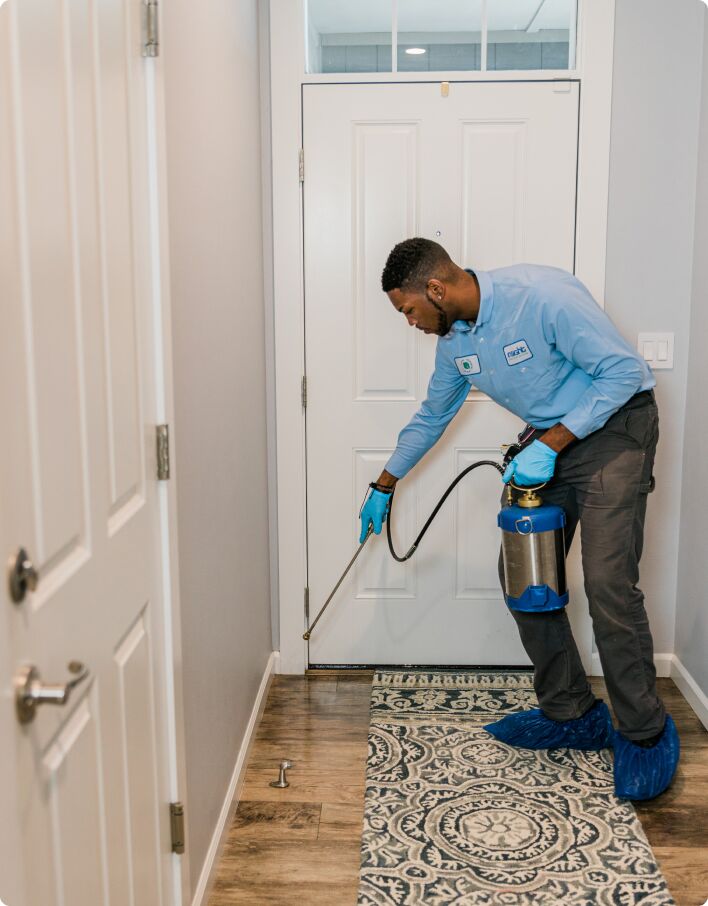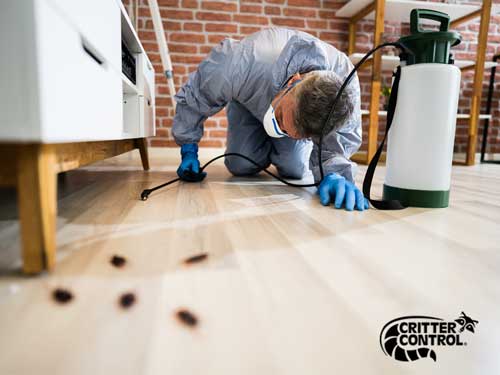Why Pest Control in Charlotte County Is Essential for Your Property’s Health
Reveal the Importance of Bug Control in Preserving a Healthy Environment and Treatment Methods

The Function of Parasites in Communities
Pests, commonly seen exclusively as nuisances, play a complex function in ecological communities that is crucial for keeping environmental equilibrium. They add dramatically to numerous environmental processes, consisting of pollination, vitamins and mineral biking, and bug control. For example, many insect species, such as butterflies and bees, are essential pollinators for a vast array of plants, which subsequently supports biodiversity and food manufacturing.
Furthermore, parasites work as target for various predators, developing a crucial web link in food webs. This connection ensures the survival of numerous types and aids manage populaces within environments (Termite treatment Port Charlotte). Decomposer parasites, such as particular beetles and fungi, are important in breaking down organic matter, therefore improving dirt and facilitating vitamins and mineral recycling.
Conversely, while parasites can be advantageous, their overpopulation or invasion into non-native settings may disrupt these environmental features. This complexity emphasizes the importance of recognizing parasite dynamics, as efficient pest monitoring methods must consider both their ecological functions and potential influence on human activities. Balancing pest presence while lessening damage is important for preserving the honesty of communities and ensuring agricultural performance.
Health Dangers Related To Parasites
The visibility of parasites in numerous settings expands past their ecological functions, as they likewise pose considerable health dangers to animals and humans. Several parasites, including rodents, bloodsuckers, and bugs, are carriers of diseases that can have significant health and wellness effects. Rodents are understood to transmit hantavirus and leptospirosis, both of which can lead to serious breathing and kidney issues, respectively.
Pests such as insects and ticks are well known for spreading vector-borne diseases like jungle fever, dengue fever, and Lyme disease. These diseases can cause high morbidity and death rates, particularly in prone populations. Additionally, pests like roaches and insects can worsen allergies and asthma, adding to breathing problems in people, specifically those with pre-existing conditions.
Furthermore, the visibility of pests can result in mental stress and anxiety and discomfort, affecting general wellness. Contamination of food and surfaces by pest droppings and stays can bring about foodborne diseases, highlighting the value of preserving sanitary problems. As a result, recognizing the health and wellness risks linked with parasites is critical in recognizing the necessity of efficient insect management approaches to safeguard animal and human wellness.

Benefits of Efficient Insect Control
Reliable insect control is important for preserving a safe and healthy and balanced setting, as it consistently mitigates the numerous risks linked with pest infestations. Among the key advantages of effective bug management is the decrease of carcinogen. Pests such as insects, rats, and cockroaches are vectors for diseases that can influence both people and pet dogs. By managing these populaces, the likelihood of illness transmission is significantly lowered.
Furthermore, efficient parasite control safeguards home and frameworks from damages. Numerous bugs, like termites and carpenter ants, can create comprehensive structural damages that may require expensive fixings. By proactively managing these services, house owners and infestations can secure their investments.
An additional significant benefit is the renovation of overall lifestyle. A pest-free setting adds to psychological health and minimizes stress related to problems. In addition, reliable insect control cultivates a safer environment for pets and children, making sure that homes continue to be shelters devoid of disease-causing microorganisms and harmful chemicals.
Usual Bug Control Techniques

In the realm of insect administration, various strategies are employed to deal with infestations effectively. These strategies can be extensively categorized right into 3 major strategies: social, mechanical, and chemical controls.
Social control includes customizing practices to minimize parasite facility, recreation, and survival. This might consist of crop rotation, proper sanitation, and habitat adjustment, which collectively develop an atmosphere less conducive to pest proliferation.
Mechanical control utilizes physical additional reading techniques to get rid of bugs (Termite treatment Port Charlotte). Methods such as catches, barriers, and vacuums are generally made use of to directly eliminate parasites from a location. This technique is especially reliable for taking care of rats and insects without the use of hazardous chemicals
Chemical control entails the application of chemicals to manage parasites. These compounds can be classified into herbicides, fungicides, and insecticides, each targeting certain kinds of parasites. It is essential to use these chemicals judiciously, sticking to safety and security guidelines and laws to lessen prospective injury to non-target species and the setting.
Each parasite control strategy has its constraints and advantages, and typically, an integrated approach incorporating several techniques produces the very best lead to keeping a pest-free setting.
Lasting Bug Monitoring Practices
Lasting pest monitoring techniques include a series of approaches developed to minimize environmental influence while effectively controlling insect populations. These techniques prioritize making use of ecologically pleasant methods over chemical pesticides, thus minimizing the threat of damage to non-target varieties, including valuable bugs, wild animals, and humans.
Integrated Pest Management (IPM) is a cornerstone of sustainable techniques, incorporating biological, cultural, mechanical, and chemical techniques to handle bugs. For example, biological control entails introducing all-natural predators or bloodsuckers to suppress bug populations. Social practices, official site such as plant turning and polyculture, disrupt pest life process and improve environment durability.
Mechanical approaches, such as traps or obstacles, can successfully stop pest gain access to without chemical treatment. Furthermore, keeping healthy and balanced ecosystems through proper dirt monitoring, plant health, and biodiversity can normally reduce parasite concerns.
Education and learning and awareness are important components, equipping people and neighborhoods to acknowledge pest threats early and apply safety nets. Termite treatment Port Charlotte. By promoting an all natural technique that stabilizes parasite control with environmental integrity, sustainable insect administration methods not only safeguard crops and frameworks but likewise contribute to a healthier environment for future generations
Verdict

Understanding the wellness risks connected with bugs is important in acknowledging the requirement of efficient pest administration strategies to safeguard animal and human health.
Efficient bug control is vital for maintaining a risk-free and healthy environment, as it consistently minimizes the various risks associated with bug invasions.Integrated Insect Administration (IPM) is a foundation of sustainable methods, integrating biological, cultural, mechanical, and chemical techniques to manage bugs. By recognizing the function of insects, acknowledging associated wellness risks, and using varied therapy techniques, a see this here lasting strategy to pest monitoring can be attained. Integrated Bug Monitoring (IPM) emphasizes a holistic approach that reduces injury to useful microorganisms while successfully controlling pest populaces.